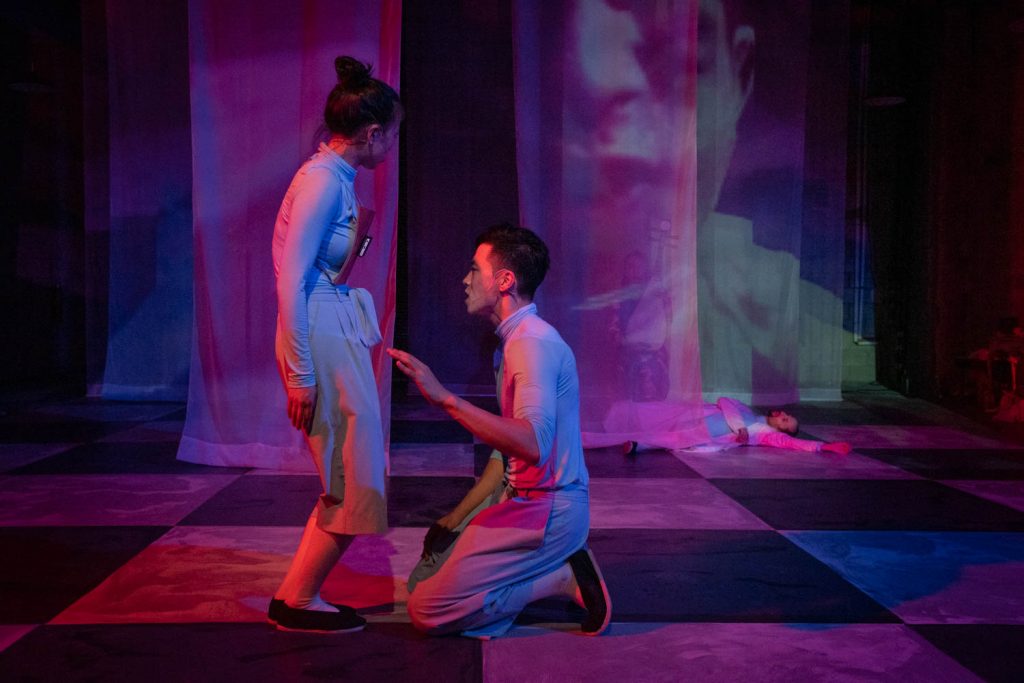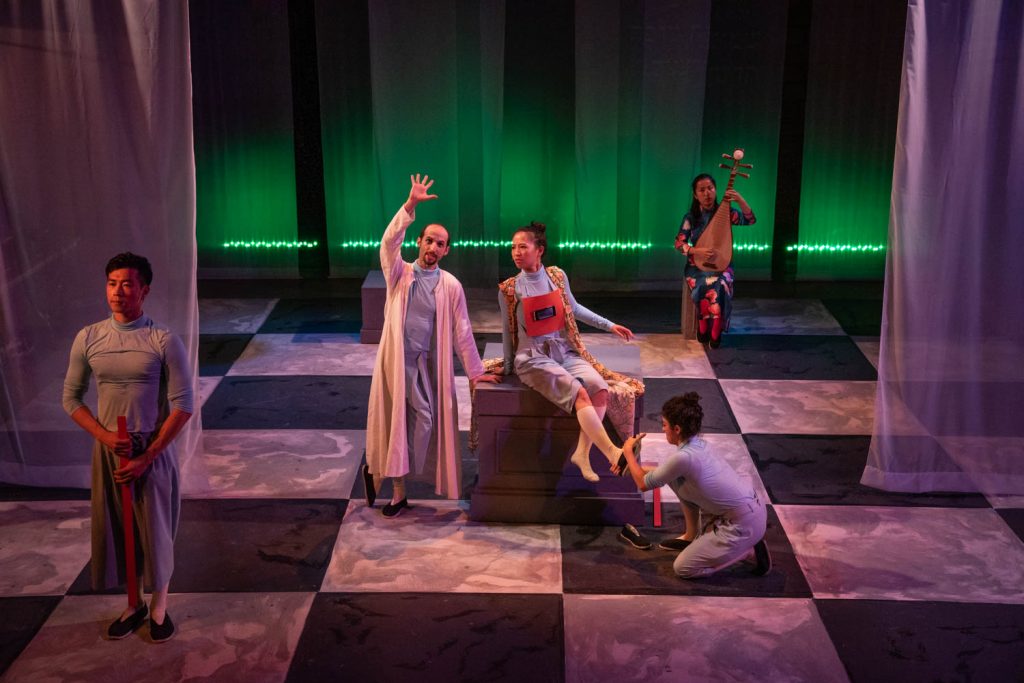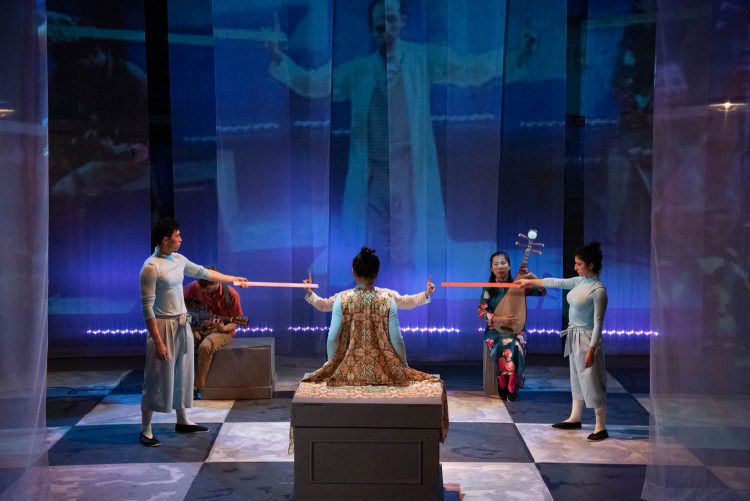A genre-bending show combining Kung Fu and the Talmud by a company called Meta-Phys Ed? Max and Kirill wanted in, even if it meant schlepping down to Sunset Park. Luckily, the post-industrial neighborhood boasts more than just bleeding-edge theater. Five Boroughs Brewing Co. a few blocks north set the stage for their post-show debate.
Max: First of all, what is a Sicarius? The term kept coming up, but did they define it?
Kirill: The Sicarii are the zealots, the ones who want to end the siege of Jerusalem and fight the Romans. They burned down the food stores to make the Jews fight…
Max: I remember all that, but what does it have to do with the price of tea in Judea? Seriously, Kirill, whether the sale of a piece of land is valid if bought from a Sicarius?
Kirill: We’ll get to that, Max. Though I think it’s a case of text as pretext. When Kung Fu masters fight, what matters is the dance, not why they are dancing. And this is a dance worth watching. With lines from the Talmud instead of lyrics. On a floor like a checkerboard. Between white veils like columns.
Max: Or like the veil of the temple. I think that was mentioned, how Titus cut the veil and laid a whore on a Torah scroll in the Holy of Holies.
Kirill: That you remember.
Max: Of course. It was visceral. Like the part about Jesus boiling in excrement.
Kirill: There’s some debate about that passage, whether it refers to Jesus of Nazareth. There are several “Yeshus” in the Talmud.
Max: Either way, the veils were good, how they projected Hebrew onto them, and live video, and dragged them up and downstage. It was aggressive. And I like that the video was soft, so it felt more like holograms than movies. Fuzzy images, the kind your mind makes in the background when you try to imagine how something looks from another angle. Especially the overhead shots.
Kirill: Or when they spoke to the camera and gave us first and third person perspective simultaneously—an interesting montage effect.

Max: But what was it about?
Kirill: The mishna deals with property law. Can a property confiscated in war be purchased legally from the confiscator, or does the previous owner have rights to it? Think of Holocaust reparations, and you’ll see the question is as relevant today as it was in 70 B.C. Though this connection is never made. And the argument goes unexplained. I confess, if I hadn’t read the passages beforehand I would be quite as lost as you. And even then it’s unclear in parts. The Gemara, for example, seems to suggest the Sicarii were gentiles. But clearly…
Max: The stories at least were clear. The ones from the siege of Jerusalem. The shoe that wouldn’t come off. The messenger smuggled in a coffin. These were interesting in themselves and performed with a good balance of narrative, dialog, and karate chops. And Eli M. Schoenfeld is razor sharp as Bar Kamtza, the character who starts the war.
Kirill: The stand-out for me was Lucie Allouche, and for a brief, mesmerizing interlude, Lu Liu on the pipa. But all five were excellent, a brilliant ensemble that never drops a line or misses a step—as far as I could tell.

Max: Is that what the Chinese guitar is called? The pipa? Leave it to you to know.
Kirill: The recorded music worked, too, by Avi Amon. It set some powerful rhythms that drove the text. And director Jesse Freedman should be applauded for even attempting a show like this, much less succeeding. Because it really works. It’s entertaining, engrossing, surprising, though I must say it’s too focused on form to be truly thought-provoking.
Max: I agree it’s worth recommending. But what didn’t work for me was the drawn-out ending. The play takes us to hell to talk with the spirits of the dead. This, to my mind, is the climax. To go from this to another fifteen minutes of property law with no narrative or characters is frustrating.
Kirill: It helps to know the material. The pace is so rapid that, as I said, you’re better off doing your homework. I did send you a link.
Max: I got as far as the first mention of Sicarius. And besides, a play should stand on its own.
Kirill: No work of art stands on its own, Max. It’s always part of a cultural context, a tradition. And in this case the tradition is especially long.
Max: How long is it, Kirill?
Kirill: Depends on which rabbi you ask. You know the saying: two Jews, three opinions.
“The Talmud” is running at Target Margin Theater through September 28. For more information, visit meta-physed.com. To do your homework, go to sefaria.org.

